In this article, we will reveal what’s wrong in the Rabbis’ claim that, allegedly, the written law of Moses cannot be understood without the rabbinical tradition clarifying it in the Oral Law. SO DO WE REALLY DEPEND ON THE RABBINICAL TRADITION, “THE ORAL LAW”, IN ORDER TO UNDERSTAND THE WRITTEN LAW? This is what the rabbis want us to believe. In that way, we stay dependent on them. This dependency brings them power which also enables them to extort people and make a lot of money. But in the Bible God tells the people of Israel the exact opposite.
0 Comments
God asked Moses to lead his people out of slavery in Egypt to the Promised Land. Moses was at first reluctant, thinking that the Israelites would not believe he had heard the word of God. God then gave Moses special powers and inspired by this, Moses returned to Egypt and demanded freedom for his people.
God had big plans and a big purpose for Moses- But WHY was Moses sent to the wilderness? What is the SYMBOLISM of this narrative? The Purpose of the Wilderness in the Lives of God’s People: If you are at a wilderness place in your life, you may find it to be more puzzle than purpose. You might be overwhelmed and confused. You might find yourself questioning God’s wisdom—or maybe even your own. I want you to think for a moment about being in the center of God’s will. What does that mean? What would it look like? Would it be a time of happiness and fulfillment? Is there ever a time that the center of God’s will might be a place of discouragement and difficulty? What about the children of Israel? God called Moses to bring them out of Egypt and into the center of His will. The center of His will for them would eventually be Canaan, but for a time, the center of God’s will was a great and terrible wilderness. Has God’s will for you included a period of time in the wilderness? Time in the wilderness means facing wilderness struggles, and wilderness hardships, and wilderness questions. It can be a place of problems, and at the same time, a place of purpose. The wilderness is a puzzle from our perspective, but from God’s perspective, it is His perfect plan for our lives. We have said enough about wilderness questions. What can we know for sure about the purpose of the wilderness in the lives of God’s people? The Wilderness is a Place of Separation God carried them into the wilderness so that they could be apart from the influences of Egypt. The uncertainties of the wilderness create a need for God and a dependence upon God. God lets you do without, so you can come to know Him as your provider. God lets you be lonely, so that you can come to know Him as your friend. God lets you be frightened and worried, so that you can come to know Him as your peace. God lets you be weak, so that you can know His strength. In the wilderness, God reveals Himself. In the darkness of the wilderness, He is your light. In the confusing maze of the wilderness, you learn to let Him be your guide. In the wilderness, He separates you from the influences of the world, as well as the things and people that you have learned to depend on, so that you will learn to depend on Him. God will be faithful to you in whatever wilderness you are facing, just as He was to the people He led out of Egypt. The Wilderness is a Place of Preparation. Looking back on those years in the wilderness, this is what God said to His people as they came to the Promised Land. 5“I have led you forty years in the wilderness; your clothes have not worn out on you, and your sandal has not worn out on your foot. 6“You have not eaten bread, nor have you drunk wine or strong drink, in order that you might know that I am the LORD your God. Deuteronomy 29:5-6 What has been your God appointed wilderness? Are you there right now? What do you suppose God is trying to teach you? Are you learning the lessons that God wants you to learn? When God takes you to the wilderness, He withholds that which you have come to depend on other than Him. Maybe you came to depend on your job to provide. God removes the job for a time, so that you will learn to depend on Him. Maybe you came to depend on your own strength or stamina. Then God brings weakness into your life, so that you will learn that your strength is in Him. You see it as deprivation. God sees it as preparation. “You shall remember all the way which the LORD your God has led you in the wilderness these forty years, that He might humble you, testing you, to know what was in your heart, whether you would keep His commandments or not. 3“He humbled you and let you be hungry, and fed you with manna which you did not know, nor did your fathers know, that He might make you understand that man does not live by bread alone, but man lives by everything that proceeds out of the mouth of the LORD. 4“Your clothing did not wear out on you, nor did your foot swell these forty years. 5“Thus you are to know in your heart that the LORD your God was disciplining you just as a man disciplines his son. 6“Therefore, you shall keep the commandments of the LORD your God, to walk in His ways and to fear Him. Deuteronomy 8:2-6 The Wilderness is a Place of Revelation. In the third month after the sons of Israel had gone out of the land of Egypt, on that very day they came into the wilderness of Sinai. When they set out from Rephidim, they came to the wilderness of Sinai and camped in the wilderness; and there Israel camped in front of the mountain. Moses went up to God, and the LORD called to him from the mountain, saying, “Thus you shall say to the house of Jacob and tell the sons of Israel: You yourselves have seen what I did to the Egyptians, and howI bore you on eagles’ wings, and brought you to Myself. ‘Now then, if you will indeed obey My voice and keep My covenant, then you shall be My own possession among all the peoples, for all the earth is Mine; and you shall be to Me a kingdom of priests and a holy nation. Exodus 19:2-6 When the center of God’s will is the wilderness, what is God’s purpose? Did you see why God brought them to the wilderness? He brought them into the wilderness to bring them to Himself.Why do you suppose that God brings you to Himself? I read again today about Jesus calling the disciples. He called unto Him the twelve. And why did He call them? Did He call them to Him to give them an assignment? Yes? But the preparation for that assignment came out of being with Him. He called the twelve to Himself, that they might be with Him and that He might send them forth to preach. Mark 3:14 Part of the preparation for what God wants you to do will grow out of the revelation of Himself that He gives you. For most of us, the only place we can be readied to receive that revelation is in some wilderness, where God separates us from what we have learned to lean on, in order that He can show us that we need to lean on Him alone. Where are you right now? Do you find yourself in the midst of some God-Appointed wilderness struggling to know God’s will and God’s way? Do you feel alone there? Do you feel abandoned there? I know how you feel. I have been to the wilderness. I have lived in the wilderness. I felt alone. I felt discouraged. But I came to understand that the wilderness was the place of God’s presence. If you are in the wilderness, you might be angry at God. You may have considered abandoning God. In your discouragement, the wilderness can even become a place of sin. Where is God then? How will God respond to you when you have proved to yourself that you are not worthy of His love. Sometimes God takes us to the wilderness not only to show us Himself—but to show us ourselves. The truth about who we are and how we trust God surfaces in the wilderness. There, we are proved to be worse sinners than we knew ourselves to be. How does God respond then? Consider this passage from Nehemiah. “You came down on Mount Sinai; you spoke to them from heaven. You gave them regulations and laws that are just and right, and decrees and commands that are good. You made known to them your holy Sabbath and gave them commands, decrees and laws through your servant Moses. In their hunger you gave them bread from heaven and in their thirst you brought them water from the rock; you told them to go in and take possession of the land you had sworn with uplifted hand to give them. “But they, our ancestors, became arrogant and stiff-necked, and they did not obey your commands. They refused to listen and failed to remember the miracles you performed among them. They became stiff-necked and in their rebellion appointed a leader in order to return to their slavery. But you are a forgiving God, gracious and compassionate, slow to anger and abounding in love. Therefore you did not desert them, even when they cast for themselves an image of a calf and said, ‘This is your god, who brought you up out of Egypt,’ or when they committed awful blasphemies. “Because of your great compassion you did not abandon them in the wilderness. By day the pillar of cloud did not fail to guide them on their path, nor the pillar of fire by night to shine on the way they were to take. You gave your good Spirit to instruct them. You did not withhold your manna from their mouths, and you gave them water for their thirst. For forty years you sustained them in the wilderness; they lacked nothing, their clothes did not wear out nor did their feet become swollen. Nehemiah 9:13-21 The first few chapters of Exodus are a build up where we see Moses prepared for an impossible task: liberating the Hebrew slaves after 400 years in Egypt. He, of course, does not feel prepared at all. How could he? How could anyone? But he was. On the one hand, he was a fugitive on the run, encumbered with an embarrassing stutter. On the other, he had grown up in the royal palace. It’s true that the king he’d grown up with had died and another was in his stead (Ex 2:23), so a personal connection with the hard-hearted Pharaoh may not have been there, but still Moses, by God’s design, was part and parcel of Egyptian high society. He knew the lingo and the etiquette of Egyptian nobility and his way around the royal household. Like Esther, Moses was secretly Jewish, yet ended up providentially living in the palace of the king, for such a time as this. Moses was sent by God on one heck of a mission. His job—at least the first part of it—was to demand the immediate release of about a million Israelites from cruel bondage. To insist that Pharaoh should allow the Hebrew slaves, his free workforce, to just leave. It seems like Moses didn’t feel like he had that authority though. With his brother Aaron at his side for emotional support, Moses ventured back to the place he grew up to face the tyrannical ruler, Pharaoh, no doubt with some trepidation: Afterward Moses and Aaron went and said to Pharaoh, “Thus says the Lord, the God of Israel, ‘Let my people go, that they may hold a feast to me in the wilderness.’” (Exodus 5:1) But that wasn’t quite the message God had told him to say, was it? Moses and Aaron appear to be asking for a temporary excursion for the Hebrew slaves. A short trip, a picnic in the Egyptian outback. God was demanding total release. “Come,” said God to Moses. “I will send you to Pharaoh that you may bring my people, the children of Israel, out of Egypt.” But Moses said to God, “Who am I that I should go to Pharaoh and bring the children of Israel out of Egypt?” He said, “But I will be with you, and this shall be the sign for you, that I have sent you: when you have brought the people out of Egypt, you shall serve God on this mountain.” (Exodus 3:10-12) God’s plan was to bring them completely out of Egypt in a very real and permanent manner—there would be no going back. And that they would meet Him over at Mount Sinai in the land of Midian, where He’d appeared in the burning bush. There He would establish His covenant with the whole house of Israel and make them a holy people with a holy calling. Then He would lead them on to the Promised Land. But Moses tries to soften the blow and paints it as a one-off religious event out in the desert. It was no such thing. It was a categorical extraction. An exodus. Fortunately, God was prepared for this, and knowing that it wouldn’t matter how nicely they asked Pharaoh would never agree, had a few tricks up His sleeve. With each plague, or blow, as it is in Hebrew, God’s demand intensified: “Let my people go!” which in Hebrew means, "Send the people of Israel into their Destiny." This throws interesting light on what was actually happening in the Exodus. God was killing multiple birds with one stone. He had waited for the sin of the Amorites to reach its full measure (Genesis 15:16) before executing justice on them and giving the land to the tribes of Israel. He rescued His covenant people from their living hell, and thew the Egyptians into the sea just as they had thrown countless Hebrew babies into the Nile. He was fulfilling His promises to the patriarchs to bring their descendants back to the Land of Promise, and establishing a faith community that would carry His word and His light to the whole world. They were not just being taken out of Egypt, they were being SENT out, with a mission: to be a light to the Gentiles. God often does both-and rather than either-or. He operates on multiple levels all the time. We often have no idea how many facets there are to God’s actions and decisions, and can foolishly interpret them to be all about us… our own life, family, community or nation. But God has a very wide-angle lens. His ways are perfect and nothing is ever wasted in His economy. God brought deliverance and blessing to the descendants of Abraham, Isaac and Jacob in fulfillment of His promises to them. They would receive their inheritance from His hand, along with blessings of spiritual nourishment, revelation, and life, which they were to pass on to all the nations of the world. The command to “Let my people go” forced Pharaoh to send Israel out of slavery and into their global calling, into their destiny. In a similar manner, we have been delivered from slavery and death by the blood of the sacrificial lamb, and brought through the waters of baptism. But God’s rescue mission wasn’t so we could sit around and eat cake—we are also sent into the world with a calling and a destiny! Whenever we thank God for His amazing salvation, His perfect plans, and the future He has prepared for us, let’s ask Him again: What is my part in Your plans and purposes? What are You sending me to do? Then I heard the voice of the Lord saying, “Whom shall I send? And who will go for us?”And I said, “Here am I. Send me!” (Isaiah 6:8) Why do you suppose God takes you into the wilderness to show you yourself so that you can see what a sinner you are? God takes you to the wilderness and shows you what a sinner you are so that He can show you what a Savior He is! In spite of the rebellion of His people, He remained faithful. He still gave them water for their thirst. He still gave them their daily bread. He still guided them on their journey. He never left them. God will be faithful to you in whatever wilderness you are facing, just as He was to the people He led out of Egypt. “In the wilderness … you saw how the LORD God carried you, just as a man carries his son, in all the way which you have walked until you came to this place. Deuteronomy 1:31 Do you suppose God might also be carrying you? I am sure you have asked God some of the same questions that I ask from time to time. “God, am I a castaway? Can you still use me?” “Do you still want me? Do you still love me?” "The very words I write were born in one of those moments in my life. I will never forget the day I was in my office working on this message. I was preparing it for me, because I keenly felt everything I have shared with you. I had allowed a deadline to pass that seemed to me to be critical to my future. I let it pass because I had no word from God. God was silent. As a result of His silence, I saw my future slip away. My despair grew deeper by the day. It reached a zenith on a Wednesday in December of 2006. I was preparing this message for my church, but I was really describing what was going on in my own life. God must have been watching as I paced around in my office that day. I was a desperately discouraged man. As I typed away at this message on my computer, the phone rang. Within an hour of that phone call, all my questions were answered. My future seemed to be restored. I had been called by God to the assignment I thought I had missed.' When that day started, I was convinced I missed God completely. I was lost in the wilderness. I felt abandoned and forgotten, and I felt I deserved to be. But that day, I met God in the wilderness, and it altered the direction of my life. Six months later, I shared the same message with my church on a Sunday night. The next day, I would be stepping through the door God had opened. This is what I said in closing: “Tomorrow I set foot on the road that God called me to travel. It may not lead out of the wilderness—but I am convinced that it will lead me to Him.” That is, after all, the purpose of the wilderness in the lives of God’s people. He brings us into some great and terrible wilderness, so that He might bring us to Himself." (-Story by Eddie Eshtaigi) When Jesus gave the second commandment, he said it was like unto the first, he said: “On these two commandments hang all the law and the prophets” (Matt. 22:40). He made them very important—so important that all other laws and commandments rest upon them. Jesus took Peter, James and John up a high mountain. He was transfigured – his face shone like the sun and his clothes became dazzling white. Moses and Elijah appeared with Jesus. A bright cloud enveloped them and a voice said, “This is my Son, whom I love; with him I am well pleased. Listen to him.” Moses and Elijah are two key figures from the OT. Moses led God’s people, the Israelites, out of slavery in Egypt. He then met with God on Mount Sinai and gave them God’s laws. Moses’ face was radiant after such close contact with God. Elijah was a prophet, one of God’s #messengers. He also went to Mount Sinai, where God revealed himself in a gentle whisper. Their roles can be summarised as follows: (MOSES=THE LAW… ELIJAH=THE PROPHETS) God’s presence is often shown by cloud or fire. Mountaintops were often the location for appearances from God. This cloud or fire was ‘shekinah’ in Hebrew. Matt16:13-20, Peter has shown -understanding- of #Jesus’ #identity, that he is the #Christ(Messiah). This experience is to help deepen this *understanding. Only Jesus’ three closest followers are chosen to witness it. Jesus wants them to understand that his role of Messiah will involve suffering and death, but will not be the final outcome of his mission. Jesus will return in this physical form after completing his earthly spirit lead task. Matthew’s readers would easily pick up on the OT references. It takes place six days after Peter’s declaration of faith, linking Moses who spent six days in preparation before approaching God in a cloud on Mt. Sinai. Mountain + cloud symbolizes presence of God. Moses and Elijah appear and stand beside Jesus- #symbolizing Jesus is their successor and has #fulfilled both. He is now bringing a new covenant from #God for #all people.X
The covenant concept is central of Scripture, establishing and defining God’s relationship with mankind in every *age of *history. The OT was established between God and the people of Israel after Freeing them from Egyptian slavery. Moses, leading them from captivity- served as mediator of this contract at Mount Sinai: (“Moses took the blood from the basins- splattered it over the people, declaring, “this blood confirms the covenant the Lord has made with you in giving you these instructions.(Exodus 24:8, NLT)” God promised Israel would be his chosen people, and he would be their God: (“I will claim you as my own people, and I will be your God. Then you will know that I am the Lord your God who has freed you from your oppression in Egypt(Exodus 6:7,)” God issued the Ten Commandments and laws in Leviticus to be obeyed- If they complied, he pledged prosperity and protection in the Promised Land). To address sins, God set up a system of “animal blood sacrifices.” That system lasted hundreds of years, but it was only temporary. Out of love, God sent his only Son, Jesus, into the world; This new covenant would resolve -the #fall- once and *for *all (Isaiah). For 3 years, Jesus taught throughout Israel about the kingdom of God and his -upcoming role- as #Messiah. To support his claim as Son of God, he performed many miracles, even raising people from the dead. By dying on the cross, Christ became #Lamb of God, the #ultimate #perfect #sacrifice, whose blood has the -power- to #redeem us #forever. Jesus freely #intercedes for us before God- We now -encounter God- ourselves; no longer needing a human to speak for us. Israel struggles to find closeness with God, but the gospel illustrates the covenant now through the power of Christ’s divine blood- sacrificial love- in -manifested- spirit through his *word. While God's grace frequently broke through in the OT, its #presence manifests in #spirit through the resurrected #living christ- The free gift of redemption in Christ is available to all who choose to #receive it. Israels restoration is in the-unity with christ #messiah- in the promise land- eternal #dwelling place.
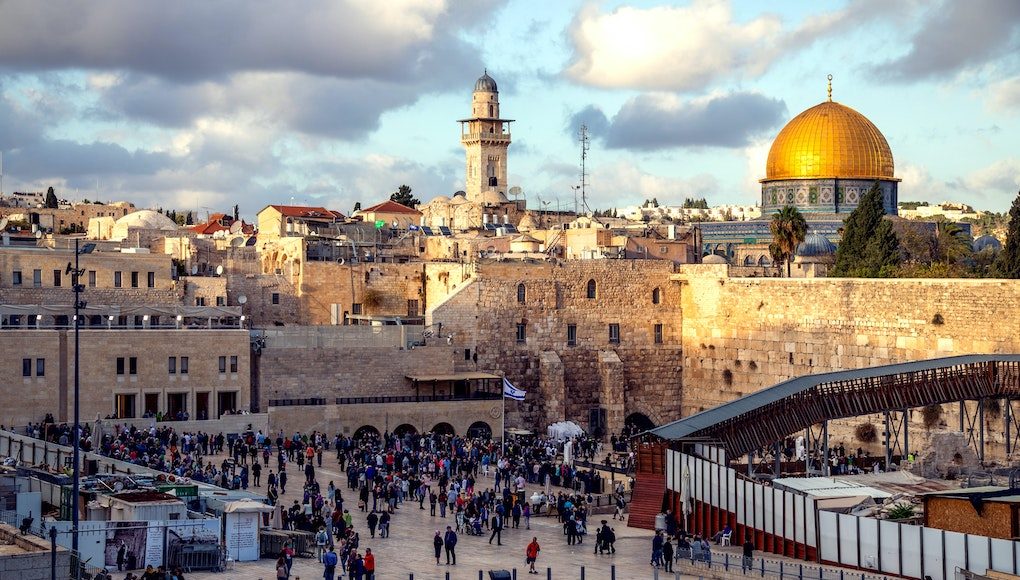 By looking at the covenants of the Bible we see God has a plan of redemption that works in time and space, history and geography. And it is not finished! A typical believer might think it goes like this: God chose Abraham and his descendents, there was the people of Israel, the land of Israel, the law, the prophets and poets which summarises the Old Testament, all culminating in Jesus – the cross, resurrection, ascension, the coming of the Holy Spirit and the birth of the Church. Now it is the role of the Church to evangelise and become more like Jesus in this darkening world. Then Jesus will come back. Prevalent as it may be, the outline above is incomplete. It misses the vital component of the continuing place of the Jewish people in God’s redemptive strategy, their ongoing connection with the Land of Promise and the dynamic synergy with the nations. The key to addressing this issue lies in our understanding of the Biblical Covenants. This view typically sees the Bible as a story of two covenants – the old covenant given to the people of Israel at Mount Sinai, and the other which replaced it; the New Covenant in the blood of Jesus. But the problem is that there are actually five major covenants in the Bible, not just two. EACH COVENANT IS A BUILDING BLOCK covenants are the building blocks of God’s purposes, and each one has a part to play in the unfolding of God’s redemptive plan. Understanding the framework that God chose to hang this story upon is critical to understanding God and his story. The framework he has chosen is Israel – four out of the five covenants are with the people of Israel, and the fifth was given within the people and land of Israel too. What many do not realise is that most of these covenants with Israel are still in action as God’s plan continues to unfold. We will never understand the ongoing significance of the Jewish people and the Promised Land if we simplistically break the Bible down into two covenants. In order to understand all these covenants it’s important to ask the following questions:
Only the third covenant – the Mosaic covenant made with the people of Israel at Sinai – has been fulfilled and superseded by Jesus’ first coming. Hebrews chapter 8 explains it this way, quoting the prophecy from Jeremiah 31: But now Yeshua has obtained a more excellent ministry, insofar as He is the mediator of a better covenant which has been enacted on better promises. For if that first one had been faultless, there would not have been discourse seeking a second. For finding fault with them, He says, “Behold, days are coming, says Adonai, when I will inaugurate a new covenant with the house of Israel and with the house of Judah. It will not be like the covenant I made with their fathers on the day when I took them by the hand to lead them out of the land of Egypt. For they did not remain in My covenant, and I did not care for them, says Adonai. For this is the covenant that I will make with the house of Israel after those days, says Adonai. I will put My Torah into their mind, and upon their hearts I will write it. And I will be their God, and they shall be My people. And no more will they teach, each one his fellow citizen and each one his brother, saying, ‘Know Adonai,’ because all will know Me, from the least of them to the greatest. For I will be merciful toward their iniquities, and their sins I will remember no more.” In saying “new,” He has treated the first as old; but what is being made old and aging is close to vanishing. (Hebrews 8:7-13) WHICH IS THE “OLD” COVENANT?When the writer of Hebrews talks about the “old” covenant, is he referring to the covenant that God made to Noah (Genesis 8:20 – 9:17)? God promised he would never flood the earth again, and produced a rainbow to seal the deal. Nope. That covenant is still in place – it will last for all generations. “I will remember My covenant that is between Me and you and every living creature of all flesh. Never again will the waters become a flood to destroy all flesh.” (Genesis 9:15) Could it have been the covenant that God made with David (2 Samuel 7:12-16)? God promised that there would always be a descendant of the House of David on the throne, for all time. Well, we know that Jesus was from the House of David, and that He now rules and reigns at the right hand of the Father. This covenant is still standing today. Don’t you know that Adonai, God of Israel, has given kingship over Israel to David forever—to him and his sons by a covenant of salt? (2 Chronicles 13:5) Perhaps it was the covenant that God made with Abraham? God promised Abraham firstly that he would be the father of many, secondly that he would inherit the land of Israel, and thirdly that through him the whole world would be blessed. He made the very same three promises to Abraham’s son Isaac (Genesis 26:3-5), and then again to his grandson Jacob (Genesis 28:12-15) father of the twelve tribes of Israel, just to be sure. This covenant still stands according to Psalm 105:8-11 He remembers his covenant for ever, the word that he commanded, for a thousand generations, the covenant that he made with Abraham, his sworn promise to Isaac, which he confirmed to Jacob as a statute, to Israel as an everlasting covenant, saying, “To you I will give the land of Canaan as your portion for an inheritance.” How about the Mosaic covenant? The covenant God made with Moses at Sinai had a specific purpose – it was to show us how far we fall short of the standards of God. According to Galatians 3:19, the Law is like a “schoolmaster” to help lead us to the Messiah by showing us our need for him, and our incapacity to live how God wants us to. It shows us how we need the law to be written on our hearts, and we need forgiveness and supernatural power to live a life that pleases him. This law was a temporary and conditional covenant, and the New Covenant does not erase it, but fulfills it. Jesus completed the law for us, because we could not. So which covenant has been replaced by the coming of the Messiah? Only one. The Mosaic covenant. The coming of the New Covenant radically changed how we understand the Mosaic covenant today, but it did not change God’s promises to Noah, Abraham or David. The crucial question now is, are God’s purposes in the Abrahamic Covenant (creating the people of Israel, placing them in the land of Israel, and making them a blessing to the whole earth) supposed to continue on for some reason? THE ONGOING ABRAHAMIC COVENANT when we look at the promises that God makes not only to Abraham, but that he reiterates to Isaac and also to Jacob, we can see that there is no sense in which the promise to inherit the land has a time limit. Quite the opposite. But why was it important to give them that land? We start to see that there are things foretold in the Bible concerning places and events that have simply not happened yet, but they will come to pass – not only in a spiritual sense, but also in a real, geographical and historical sense. He used a real nation and a real land to bring us our very real Messiah in a specific location and time in history. In the same way, his purposes are continually being unfolded and fulfilled, just as he promised. Whole areas of scripture are transformed and come alive once we recognise that the Abrahamic covenant has not been terminated by Messiah’s coming. This particularly applies to huge amounts of prophecy about God’s dealings with the Jewish people through exile for disobedience and then restoration and blessing. God means what he says. When we see the Bible in this manner – reading it as if it really means what it says – we see familiar passages in an amazing new light. The twentieth century saw the fulfilment of several promises prophesied in scripture – the regathering of Israel, the revival of the Hebrew language, restoration of the shekel as currency, the speeding up of global travel and an explosion of knowledge to name just a few. There is much yet to come, but are we ready for it? Do we know what the prophets have said? Or did you think that the Old Testamentwas not important any longer?
|
|
|
|
|
|
|
|
|
Paragraph. Clicca qui per modificare.
|
Paragraph. Clicca qui per modificare.
|
Paragraph. Clicca qui per modificare.
|
Paragraph. Clicca qui per modificare.
|
Paragraph. Clicca qui per modificare.
|
|

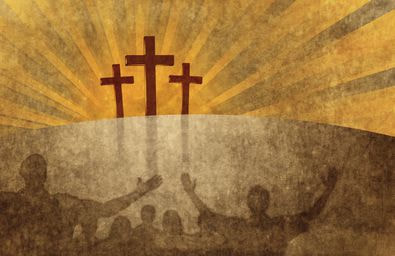
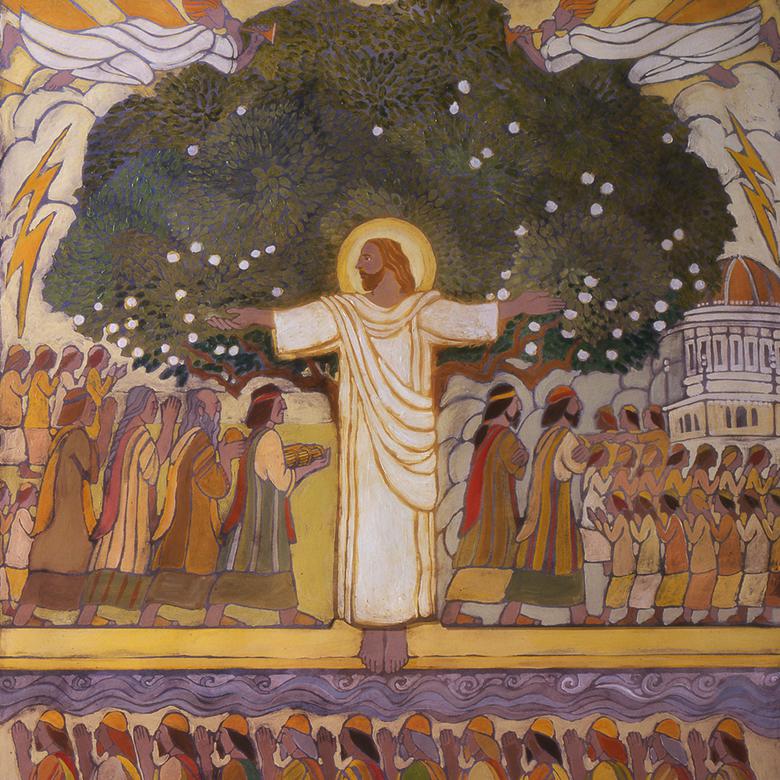
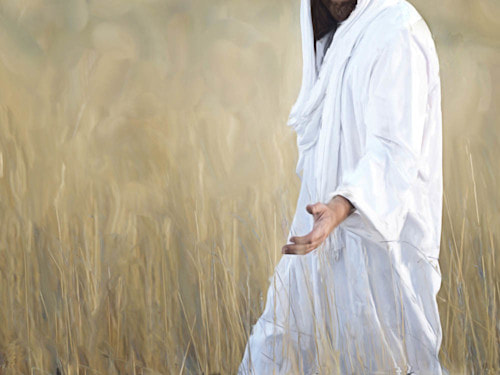
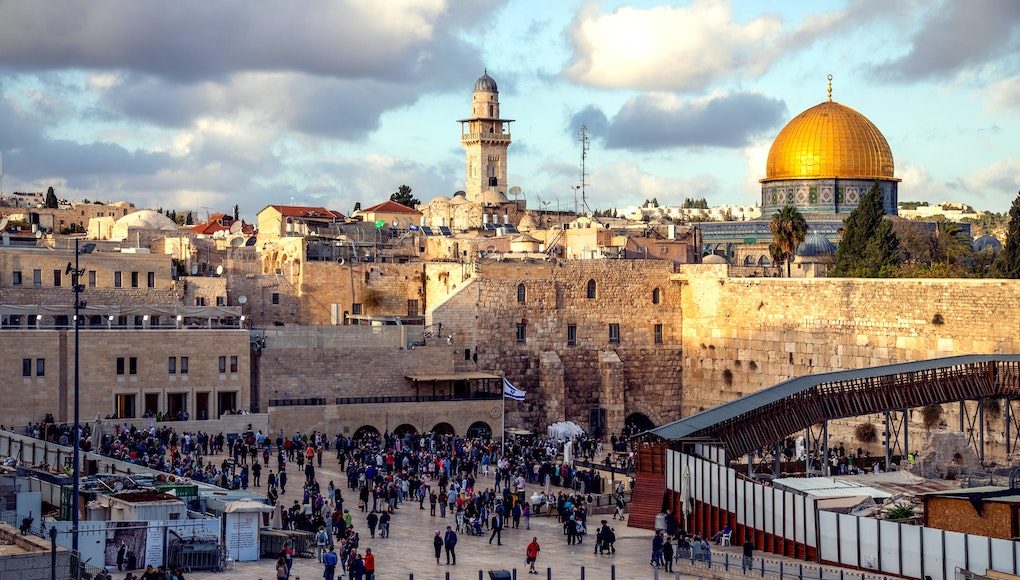
 RSS Feed
RSS Feed





















































